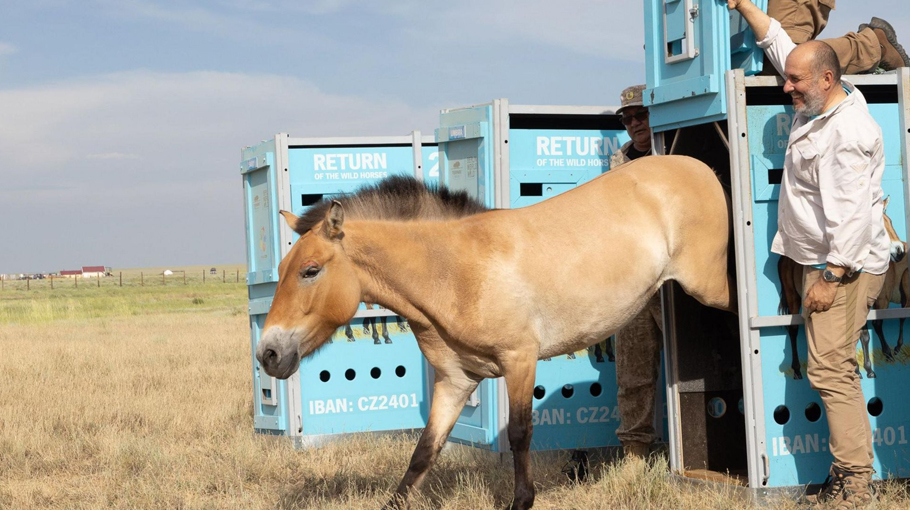Wild horses return to Kazakh plain after centuries

Endangered wild horses have returned to the Golden Steppe of Kazakhstan for the first time in at least 200 years after decades-long efforts.
The airlifts of seven Przewalski's Horses from Europe to the Central Asian country took place in early June in an operation run by the Prague Zoo.
Researchers told the BBC that the horses are already doing well two weeks in: roaming around the plains and even beginning the mating process.
Zoo officials say it's a triumph of generations of conservation work.
"This is an endangered species returning to their ancestral lands, a species which went extinct in the wild in the 1960s, last seen in Mongolia...so it's just marvellous... a miracle," said Filip Mašek, a spokesman for Prague Zoo.
While the horses have been slowly reintroduced to Mongolia and China in recent decades, this operations marks the first time they are back in Kazakhstan.
The Przewalski's Horse is the last wild horse species on the planet, named after Russian explorer Nikolai Przewalski who was the first to identify the horse for the European science community.
The species originated millennia ago from the steppes of Central Asia and was taken by researchers to Europe and North America in the 19th and 20th Centuries, where populations were established in zoos.
Some of them ended up in zoos in Munich and Prague - it's their descendants that have now been reintroduced in Kazakhstan.
Cultural artefacts show people in the country's north were riding and using the horses for food at least 2,000 years before records of domesticated horses in Europe.
But by the time of Przewalski's "discovery" in 1879, the horses could only be found in a small section of western Mongolia. Competition with humans and livestock, along with changes in the environment led to them dying out.
Recognising the threat, international efforts were made after World War 2 to save the animals. The Prague Zoo was entrusted with the "international studship" of the breed.
It introduced the first contingent back into Kazakhstan last week- a group consisting of one stallion and six mares.
It aims to bring in at least 40 more over the next five years.
"This is an event of historical import," said the zoo's director Miroslav Bobek in a statement.
"The seven horses that we transported here by two Czech Army planes represent the first individuals of this species in central Kazakhstan in hundreds of years."




